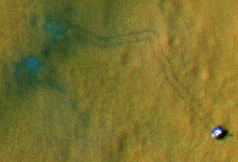A Democratic Hawaii state lawmaker threatened to file criminal charges against a newspaper for publishing a letter critical of the lawmaker.
Leftwing debate: A Democratic Hawaii state lawmaker threatened to file criminal charges against a newspaper for publishing a letter critical of the lawmaker.
Hey, isn’t that what we all do when someone criticizes us, go to the state Attorney General to get criminal charges filed?
Leftwing debate: A Democratic Hawaii state lawmaker threatened to file criminal charges against a newspaper for publishing a letter critical of the lawmaker.
Hey, isn’t that what we all do when someone criticizes us, go to the state Attorney General to get criminal charges filed?




